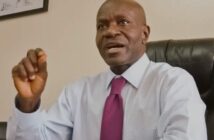Amidst the sprawling hills of Ik constituency in Kaabong district, northeastern Uganda, an indigenous minority tribe is taking a unique approach to overcome the challenges of mobile phone network connectivity.
The Ik people, residing in the hilly areas that stretch from Kaabong to Karenga district, bordering South Sudan and Turkana in Kenya, have found an innovative way to stay connected – by utilizing tall trees to trap mobile phone signals.
While major telecommunication companies like MTN and Airtel operate in the region, phone connectivity remains a formidable obstacle in the parishes of Morungole, Timu, Kalapata, and Kamion within the Ik constituency. In these areas, residents find themselves resorting to a specific tree with network coverage whenever they need to make or receive calls.
To shield their phones from the harsh weather conditions, residents ingeniously place them in plastic bottles to fend off the sun’s heat and rain. Emmanuel Lokol, a resident, expressed the struggles they face due to the lack of mobile connectivity.
He revealed that they often rely on motorcyclists to convey messages within the community. Insecurity compounds these communication challenges, as it can take over an hour to realize that the Turkana cattle rustlers from neighbouring Kenya have infiltrated their territory for raids.
Lokol further highlighted the impact on business, particularly gold trade. Despite the booming business opportunities due to the strategic border location between Uganda and Kenya, weak network connections result in significant losses for traders who heavily depend on mobile phones to connect with their customers.
Calling on telecommunication companies, particularly MTN, Lokol appealed for the installation of network towers and boosters in their area to usher them into the modern era.
“Ik County is like where most transactions take place. People go to spotted places and raise their phones in those trees. Or if someone is going to get a call, they wait… When the Turkana attackers cross into Uganda, it takes an hour for people to get information,” he said.
Julius Lokong, a mobile money operator notes that customers often face delays of up to two hours for money transfers due to frequent network disruptions.
‘‘We have we have been living with network problems for so long, in fact, we no longer think of having better connections any day because it is a crisis we were born in,” Lokong lamented.
People queue up to make phone calls
In the midst of this crisis, Godfrey Pulkol, the Kaabong district social services secretary, pointed out that only urban areas enjoy relatively better network connections. Those living outside of town are left behind, resorting to scaling hills to tap the signals
“You look for the network, you go up the hills that is when you will find the network. We do coordinate with the chairperson who has a motorcycle and deliver the message to them…It is really challenging, I don’t know how to explain that now,” said Pulkol.
Meri Jino, the LC 5 chairperson of Kaabong district, acknowledged the pressing issue, noting its impact on communication and mobilization. He revealed that some residents resort to roaming networks, including Kenya’s Safaricom options, despite their higher rates for calls.
The dire state of network connections has even affected government programs like the Parish Development Model (PDM), which requires reliable communication channels for disbursing funds directly to beneficiaries’ phones. He noted that while efforts have been made to address the issue through correspondence with MTN and Airtel, tangible solutions have yet to materialize.
“Even this PDM, I don’t think it will work for us here. It is a big problem, but if we had a network in that area it would help. We have written to MTN, we have written to Airtel and we have written even follow-up letters but when they came to construct the one of Lolelia [sub county], we thought they had actually come to improve the entire district. We don’t actually receive [direct]calls, we come and check if someone has called and then you call back,” said Jino.



